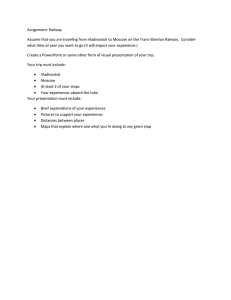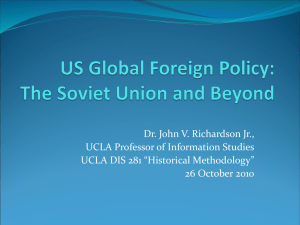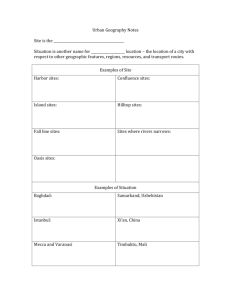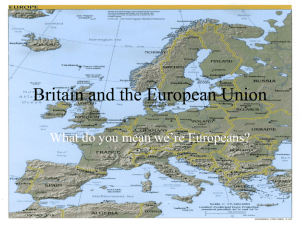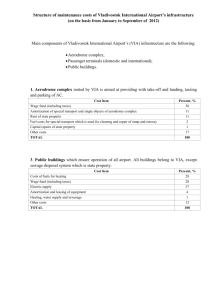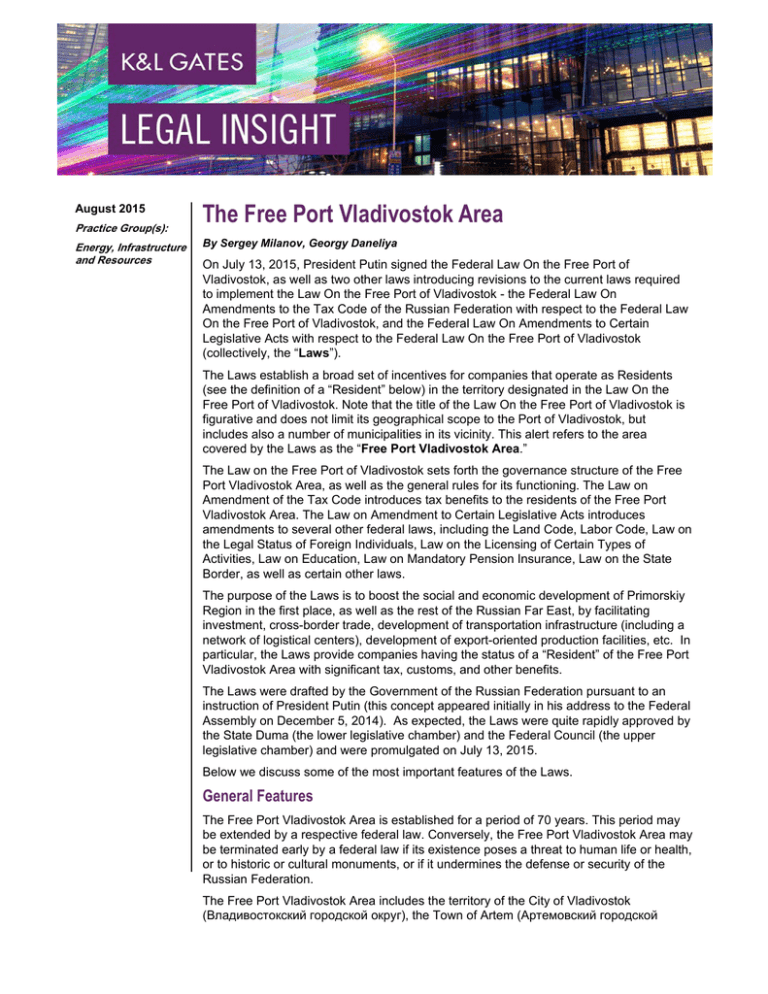
August 2015
Practice Group(s):
Energy, Infrastructure
and Resources
The Free Port Vladivostok Area
By Sergey Milanov, Georgy Daneliya
On July 13, 2015, President Putin signed the Federal Law On the Free Port of
Vladivostok, as well as two other laws introducing revisions to the current laws required
to implement the Law On the Free Port of Vladivostok - the Federal Law On
Amendments to the Tax Code of the Russian Federation with respect to the Federal Law
On the Free Port of Vladivostok, and the Federal Law On Amendments to Certain
Legislative Acts with respect to the Federal Law On the Free Port of Vladivostok
(collectively, the “Laws”).
The Laws establish a broad set of incentives for companies that operate as Residents
(see the definition of a “Resident” below) in the territory designated in the Law On the
Free Port of Vladivostok. Note that the title of the Law On the Free Port of Vladivostok is
figurative and does not limit its geographical scope to the Port of Vladivostok, but
includes also a number of municipalities in its vicinity. This alert refers to the area
covered by the Laws as the “Free Port Vladivostok Area.”
The Law on the Free Port of Vladivostok sets forth the governance structure of the Free
Port Vladivostok Area, as well as the general rules for its functioning. The Law on
Amendment of the Tax Code introduces tax benefits to the residents of the Free Port
Vladivostok Area. The Law on Amendment to Certain Legislative Acts introduces
amendments to several other federal laws, including the Land Code, Labor Code, Law on
the Legal Status of Foreign Individuals, Law on the Licensing of Certain Types of
Activities, Law on Education, Law on Mandatory Pension Insurance, Law on the State
Border, as well as certain other laws.
The purpose of the Laws is to boost the social and economic development of Primorskiy
Region in the first place, as well as the rest of the Russian Far East, by facilitating
investment, cross-border trade, development of transportation infrastructure (including a
network of logistical centers), development of export-oriented production facilities, etc. In
particular, the Laws provide companies having the status of a “Resident” of the Free Port
Vladivostok Area with significant tax, customs, and other benefits.
The Laws were drafted by the Government of the Russian Federation pursuant to an
instruction of President Putin (this concept appeared initially in his address to the Federal
Assembly on December 5, 2014). As expected, the Laws were quite rapidly approved by
the State Duma (the lower legislative chamber) and the Federal Council (the upper
legislative chamber) and were promulgated on July 13, 2015.
Below we discuss some of the most important features of the Laws.
General Features
The Free Port Vladivostok Area is established for a period of 70 years. This period may
be extended by a respective federal law. Conversely, the Free Port Vladivostok Area may
be terminated early by a federal law if its existence poses a threat to human life or health,
or to historic or cultural monuments, or if it undermines the defense or security of the
Russian Federation.
The Free Port Vladivostok Area includes the territory of the City of Vladivostok
(Владивостокский городской округ), the Town of Artem (Артемовский городской
The Free Port Vladivostok Area
округ), the Town of Bolshoy Kamen (городской округ Большой Камень), the Port of
Nakhodka (Находкинский городской округ), the Town of Partizansk (Партизанский
городской округ), the Town of Spassk-Dalniy (городской округ Спасск-Дальний), the
Town of Ussuriysk (Уссурийский городской округ), as well as Nadezhdinskiy
(Надеждинский муниципальный район), Shkotovskiy (Шкотовский муниципальный
район), Oktyabrskiy (Октябрьский муниципальный район), Olginskiy (Ольгинский
муниципальный район), Partizanskiy (Партизанский муниципальный район),
Pogranichniy (Пограничный муниципальный район), Khasanskiy (Хасанский
муниципальный район) and Khankayskiy (Ханкайский муниципальный район)
municipalities. Sea ports, including their designated water areas located on the foregoing
territory, are also included in the Free Port Vladivostok Area.
Special economic zones, zones of territorial development and areas of accelerated socioeconomic development located in the above territories are not included in the Free Port
Vladivostok Area.
Management of the Free Port Vladivostok Area
The Free Port Vladivostok Area will be governed by the following bodies:
1. the Supervisory Board of the Free Port Vladivostok Area (the “Supervisory Board”),
2. the Authorized Federal Body, which is expected to be the Ministry of Development of
the Far East of the Russian Federation (the “Ministry of the Far East”),
3. the Management Company (its functions will be performed by the Joint-Stock
Company “Corporation for the Development of the Far East” or a subsidiary thereof),
and
4. the Public Council of the Free Port Vladivostok Area, which is an optional body with
advisory functions (the “Public Council”).
The Supervisory Board is a collegiate body and is the highest-ranking governing body of
the Free Port Vladivostok Area. It is headed by the Deputy Prime Minister of the Russian
Federation in charge of coordinating the work of federal bodies in the Russian Far East.
Members of the Supervisory Board include officials such as the Minister of the Far East,
the Governor of Primorskiy Region, the President of the Legislative Assembly of
Primorskiy Region, the mayors of towns and municipalities included in the Free Port
Vladivostok Area, etc. The Supervisory Board exercises a general supervision over the
business and social activities in the Free Port Vladivostok Area, adopts development
plans with respect to the Free Port Vladivostok Area, sets the maximum number of
foreign employees that may be hired by Residents of the Free Port Vladivostok Area, and
performs certain other functions.
The Ministry of the Far East develops the procedure for admission of Residents and
maintains the register of Residents, supervises the performance by the Managing
Company of its duties, and performs certain other general functions. It also has certain
specific business-related powers: (i) it grants long-term lease rights over federal lands to
Residents without an auction to allow them to implement their business plans, (ii)
expropriates non-federal lands if needed for the building of infrastructure of the Free Port
Vladivostok Area (both of the foregoing actions are subject to approval by the
Supervisory Board), (iii) establishes easements over non-federal lands for the purposes
of building infrastructure of the Free Port Vladivostok Area.
The Ministry of the Far East is entitled to delegate some of its powers to the Management
Company.
2
The Free Port Vladivostok Area
The Public Council is an advisory body, which may be established by the Supervisory
Board to assist the Ministry of the Far East. If established, it is expected to include trade
unions, business associations, NGOs, etc.
Certain special powers with respect to the Free Port Vladivostok Area are reserved for
the Government of the Russian Federation. Thus, the Government may (i) adopt special
regulations regarding fishing and fish-processing operations in the Free Port Vladivostok
Area, (ii) introduce special licensing requirements for the provision of medical services
(including by individuals with foreign medical diplomas) and (iii) introduce special
licensing requirements allowing the provision of education pursuant to foreign programs
and standards.
Residents
A company or an individual entrepreneur may become a Resident of the Free Port
Vladivostok Area, if such company or entrepreneur:
1. is incorporated (or registered as an entrepreneur, if an individual) in the territory of the
Free Port Vladivostok Area; and
2. has concluded an agreement with the Management Company on operations in the
Free Port Vladivostok Area (an “Agreement”).
In order to conclude an Agreement, a candidate has to file with the Management
Company an application requesting the preparation and execution of such Agreement,
accompanied by a set of documents. In addition to the usual corporate documents, the
application set needs to also include a business plan and to specify the land that the
candidate needs for its operations in the Free Port Vladivostok Area.
The Management Company reviews the data in the application and evaluates the
business plan to determine if the candidate and its proposed operations satisfy the
applicable criteria. None of the Laws sets forth such criteria, but it is contemplated that
the Government of the Russian Federation will develop them.
If the Management Company approves the application of the candidate, it prepares and
dispatches to such candidate a draft Agreement for signature. Following the conclusion
of the Agreement, the candidate is automatically registered with the register of Residents
of the Free Port Vladivostok Area, thereby acquiring the status of a “Resident.”
The Agreement may be terminated early by a decision of a competent Russian court in
case of a major violation by a Resident of the terms of the Agreement (such as failure to
start business operations within 24 months from the conclusion of the Agreement, failure
to meet the investment volumes and deadlines scheduled in the Agreement, etc.).
Benefits
Here are several of the benefits available to Residents of the Free Port Vladivostok Area:
• simplified procedures for the lease of federal land lots within the Free Port Vladivostok
Area (no auction needed);
• tax benefits (see below);
• lower rates of mandatory social insurance contributions payable by a Resident with
respect to its employees;
• simplified procedure for the employment of foreign staff (quotas for employment of
foreign citizens do not apply; a Resident employer does not need to obtain a special
permit allowing it to employ foreign citizens);
3
The Free Port Vladivostok Area
• customs free zones at sea ports open to international navigation, at international
airports, and at areas adjacent to border-crossing checkpoints of the Free Port
Vladivostok Area on motorways and railways.
In addition, the Laws introduce certain general benefits available to all persons in the
territory of the Free Port Vladivostok Area:
• simplified procedures for the approval of design documentation for the construction of
buildings and facilities, and shortened periods for obtaining building permits for such
buildings and facilities;
• simplified permitting procedure for the development of artificial land lots (such as
reclaimed land and artificial islands);
• simplified procedures for the issuance of an entry visa to foreigners entering the
Russian Federation through a border checkpoint in the territory of the Free Port
Vladivostok Area, allowing a period of stay of up to 8 days.
Tax Benefits (Reduced Company Profit Tax1)
The Law on Amendments to the Tax Code grants certain tax benefits to Residents of the
Free Port Vladivostok Area, provided that such Residents (i) are incorporated in the
territory of the Free Port Vladivostok Area; (ii) do not have branches (or other detached
operating units) outside the territory of the Free Port Vladivostok Area; (iii) have not opted
to apply a simplified system for their taxation; (iv) do not belong to a consolidated group
of taxpayers; (v) are not a non-profit organization, bank, insurance company, non-state
pension fund, securities broker, or a clearing entity; (vii) do not simultaneously qualify as
residents of another special economic zone; or (viii) do not participate in regional
investment projects.
Pursuant to the Federal Law on Amendments to the Tax Code, for a period of five years
after the earlier of (i) the date on which a Resident (who satisfies the above criteria) first
generates a profit from operations in the Free Port Vladivostok Area, or (ii) the fourth year
after it became a Resident (if no profit has been generated by then), such Resident is
released from the obligation to pay the portion of company profit tax payable to the
federal budget, and its obligation to pay the portion of company profit tax payable to the
budget of Primorskiy Region may not exceed 5%2. For such five-year period, the
respective Resident will pay the 2% profit tax payable to the federal budget, while the
portion of company profit tax payable to the budget of Primorskiy Region will be in the
range of 10% to 18%.3
Customs Benefits (Customs Free Zone)
Certain customs benefits are provided to the Residents of the Free Port Vladivostok
Area.
Pursuant to the customs legislation of the Eurasian Economic Union (to which the
Russian Federation belongs), the concept of a “customs free zone” is a designated area
into which goods may be imported and within which goods may be used free of customs
duties and taxes, and without being affected by measures of non-tariff regulations or
restrictions otherwise applicable to foreign goods intended for importation in the customs
territory of the Eurasian Economic Union.
1
The standard rate of the company profit tax is 20%, comprised of two portions - 2% payable to the federal budget,
and 18% payable to the budget of the region of the Russian Federation within which the company is incorporated.
2
The actual rate will be set within that range by the legislative body of Primorskiy Region.
3
The actual rate will be set within that range by the legislative body of Primorskiy Region.
4
The Free Port Vladivostok Area
Since the customs legislation of the Eurasian Economic Union allows its member states
to set customs free zones only within special economic zones established by such states,
the Law on the Free Port of Vladivostok provides that the entire territory of the Free Port
Vladivostok Area represents a special economic zone.
The Law on the Free Port of Vladivostok directly gives the status of a customs free zone
only to sea ports within the Free Port Vladivostok Area that are open to international
navigation, and to international airports located within the Free Port Vladivostok Area
(currently, only the airport “Knevichi” qualifies as such an international airport). Pursuant
to a decision of the Supervisory Council, the status of a “customs free special port zone”4
may be conferred on such ports or airport(s), as well as on designated areas adjacent to
them.
The Supervisory Council may also establish “customs free special logistics zones”5 at
certain areas adjacent to border check-points of the Free Port Vladivostok Area on
motorways and railways.
The above decisions of the Supervisory Board must specify in particular (i) the location
and borders of the customs free zone, and (ii) the stages and financing for the building of
the infrastructure of the areas for which it has been decided to be establish a customs
free zone.
Finally, the Law on the Free Port of Vladivostok provides that a customs free zone may
be established on land lots in possession (whether owned or leased) of a Resident. For
that purpose, the candidate to become a Resident should state in its initial application to
the Management Company that it needs a customs free zone on the land it intends to
use for its business operations in the Free Port Vladivostok Area. In addition to approval
of the request of such Resident by the Supervisory Board, the establishment of a
customs free zone on the land lot of such Resident requires a favorable decision by the
regional department of the Federal Customs Service after it has inspected the finished
infrastructure required for the customs control of the designated customs free zone.
Foreign goods may be brought into a customs free zone without incurring any customs
duty or value added tax (“VAT”) obligations. Such goods preserve their status of foreign
goods while in the customs free zone, and may be re-exported freely, if they have not
been processed into a different type of goods (bearing a different customs code). They
may, of course, be imported into the territory of the Russian Federation, subject to
standard customs clearance and payment of customs duties and VAT.
Foreign goods that are brought into a customs free zone (as well as goods manufactured
or produced even partially from foreign goods) may be transferred freely to other customs
free zones of the Free Port Vladivostok Area.
Goods originating from the Russian Federation or elsewhere in the Eurasian Economic
Union may be brought freely into a customs free zone, because such activity does not
constitute export of such goods. Such goods retain their status of goods of the Eurasian
Economic Union, unless processed together with goods that do not originate from the
Eurasian Economic Union into new goods.
Goodsthat are manufactured or produced in the territory of a customs free zone, using
goods originating from the Russian Federation or elsewhere in the Eurasian Economic
Union, are considered goods of the Eurasian Economic Union. If such goods are
exported from a zone outside the boundaries of the Eurasian Customs Union they are
subject to all standard export duties (if applicable) and other applicable export
4
5
The regulations governing a “customs free special port zone” are very similar to those of a customs free zone.
The regulations governing a “customs free special logistics zone” are very similar to those of a customs free zone.
5
The Free Port Vladivostok Area
restrictions. Moving such goods outside the zone further into the territory of the Russian
Federation (or in another member state of the Eurasian Economic Union) does not
require payment of import duties and VAT.
If goods are manufactured or produced from foreign goods in the territory of a customs
free zone and then moved from the zone into the territory of the Russian Federation, they
are subject to standard customs clearance and payment of customs duties and VAT. If
such goods are moved from the zone outside the territory of the Eurasian Economic
Union, they are considered re-exported and are exempted from export duties and export
restrictions.
Customs regulations applicable to goods that are manufactured or produced from a
mixture of goods and resources, some of which originate from the Eurasian Economic
Union and others of which originate from non-Union countries (“Goods of Mixed
Origin”), are more complicated.
If such Goods of Mixed Origin are intended to be moved from the zone further into the
Russian Federation (or in another member state of the Eurasian Economic Union), they
are considered foreign goods for customs purposes and are subject to standard customs
clearance and payment of customs duties and VAT.
By contrast, if the Resident owner of such Goods of Mixed Origin desires to take them
from the zone to an area outside the territory of the Eurasian Economic Union, such
goods are considered goods of the Eurasian Economic Union, and are subject to all
standard export duties (if applicable) and other applicable export restrictions.
Note, however, that the above rule only applies to Goods of Mixed Origin, the resources
for which have been processed “significantly.” The criteria of what constitutes a
“significant” processing are set forth in detail in the customs legislation of the Eurasian
Economic Union.
Entry into Force
The Law on the Free Port Vladivostok Area will enter into force on October 12, 2015
(certain of its provisions will enter into force on January 1, 2016 and October 1, 2016).
The Law on Amendments to the Tax Code will enter into force on January 1, 2016. The
Law on Amendments to Certain Legislative Acts generally entered into force on July 13,
2015 (certain of its provisions will enter into force on August 13, 2015 and January 1,
2016).
Authors:
Sergey Milanov
Georgy Daneliya
sergey.milanov@klgates.com
+81.3.6205.3604
georgy.daneliya@klgates.com
+81.3.6205.3616
Anchorage Austin Beijing Berlin Boston Brisbane Brussels Charleston Charlotte Chicago Dallas Doha Dubai Fort Worth Frankfurt
Harrisburg Hong Kong Houston London Los Angeles Melbourne Miami Milan Moscow Newark New York Orange County Palo Alto
Paris Perth Pittsburgh Portland Raleigh Research Triangle Park San Francisco São Paulo Seattle Seoul Shanghai Singapore
Spokane Sydney Taipei Tokyo Warsaw Washington, D.C. Wilmington
6
The Free Port Vladivostok Area
K&L Gates comprises more than 2,000 lawyers globally who practice in fully integrated offices located on five
continents. The firm represents leading multinational corporations, growth and middle-market companies,
capital markets participants and entrepreneurs in every major industry group as well as public sector entities,
educational institutions, philanthropic organizations and individuals. For more information about K&L Gates or
its locations, practices and registrations, visit www.klgates.com.
This publication is for informational purposes and does not contain or convey legal advice. The information herein should not be used or relied upon
in regard to any particular facts or circumstances without first consulting a lawyer.
© 2015 K&L Gates LLP. All Rights Reserved.
7

